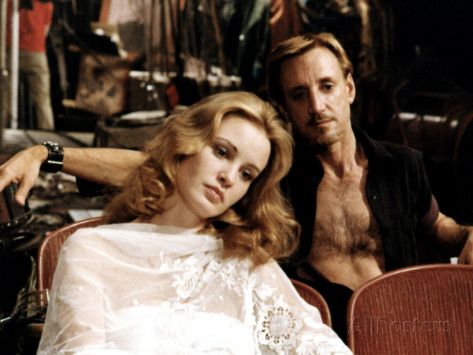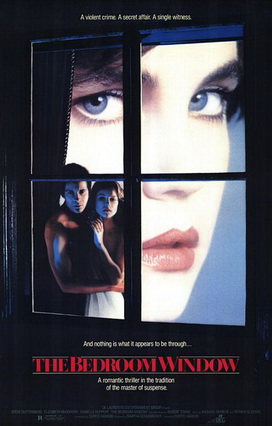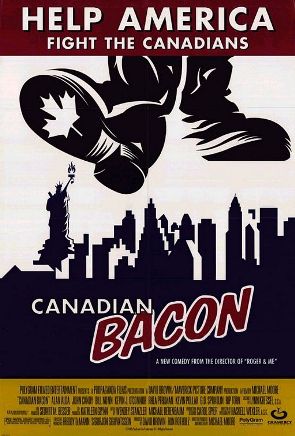Creepy movie, this is. Creepy, creepy movie.
The 1989 film, She’s Out of Control, tells the story of Doug Simpson (Tony Danza, showing why he never became a movie star), a radio manager and the single father of two daughters. When Doug goes out of town, his girlfriend, Janet (Catherine Hicks), gives 16 year-old Katie Simpson (Ami Dolenz) a make-over. When Doug leaves, Katie is awkward and wears braces and thick glasses. When he returns, she’s lost the braces, she’s switched to contacts, and every boy in the neighborhood wants a date with her. Doug freaks out.
And listen, I get it. I know that the point of the film is that parents are protective and I know that when I first started to develop and get noticed by boys, certain members of my family freaked out as well. (Of course, I was a little bit younger than Katie, who is portrayed as being the most absurdly sheltered 16 year-old of all time.) And I also understand that this film is not only a comedy but also an 80s comedy and, on top of that, an 80s comedy starring Tony Danza. So, I’m willing to accept that Doug’s reaction had to be exaggerated a bit for the joke, as it is, to qualify as being a joke.
But seriously, Doug freaks out so much that it’s just really creepy, not to mention a little bit insulting to teenage girls in general. Katie loses her glasses and her braces and suddenly, Doug is incapable of seeing her as being anything other than some sort of hypersexualized vixen. Doug goes from being protective to being rather obsessive and, since the film is told from his point of view, that means that, whenever the camera ogles Katie, it comes across as if Doug is ogling his own daughter and …. I mean, yeah, it’s pretty icky. The film’s title may be She’s Out Of Control but that’s never an accurate description of anything that Katie does over the course of the film. Instead, the only person who is truly out of control is Doug but he’s out of control to such an extent that it’s hard to watch him without hearing the voice of Dr. Phil in background, saying, “I’m a mandated reporter so I’m going to be makin’ a call as soon as the show is over….”
Speaking of everyone’s favorite unlicensed TV doctor, Doug starts to see a psychologist who is an even bigger jackass than Dr. Phil and that’s probably a good thing. Not only does Doug clearly need some mental help but it also allows the film to introduce Wallace Shawn as Dr. Fishbinder, the pompous author of a book that deals with how to raise an unruly teenager. Shawn is one of the film’s few good points. He plays Fishbinder as being such a self-important little weasel that he’s always entertaining to watch. Fishbinder encourages Doug to be strict and warns him that, if he isn’t, Katie will be pregnant in no time. Definitely, don’t let her to go to prom. “That’s where 87% of teenage girls lose their virginity!” Fishbinder exclaims, news to which Tony Danza responds by mugging for the camera like an extra in a Roger Corman monster film.
Katie has many suitors over the course of the film, some of whom are more memorable than others. Dana Ashbrook (who played drug dealer-turned-deputy Bobby Briggs on Twin Peaks) is the rebel with a heart of gold. A very young Matthew Perry is the spoiled rich kid who is only interested in one thing. An even younger Dustin Diamond (you might know him better as Screech Powers on Saved By The Bell) pops up as a kid who gawks at Katie on the beach. And while Doug comes across as being a jerk for most of the film, one can understand why anyone would be upset at the thought of Dustin Diamond coming any parent would be upset by the thought of Dustin Diamond coming anywhere near their daughter.
In the end, the main problem with the movie is that it asks you to sympathize with Doug Simpson but he’s so obviously overreacting to every little thing that you quickly grow tired of him and his worries. Of course, it doesn’t help that he’s played by Tony Danza, whose eyes often seem as if they’re on the verge of popping out of his head. Danza wanders through the movie with a perpetually shocked expression on his face and it gets old after a while. By the time he’s forcing his daughter’s friends to listen to songs from his old vinyl collection, most viewers will be done with him. It doesn’t help that Doug is described as being some sort of former hippie protester type. It’s hard to think of any other boomer actor who would be less convincing as a former hippie than Tony Danza.
She’s Out Of Control is a forgettable and, quit frankly, rather annoying little film. However, it has achieved a certain bit of fame because it was one of the film’s that Roger Ebert consistently cited as being one of the worst that he had ever reviewed. You have to keep in mind that Ebert was a film reviewer for over 40 years and during that time, he reviewed a lot of movies that he disliked. He even published at least three books devoted to negative reviews that he had written. Considering the amount of bad films that Ebert watched, the fact that he specifically cited She’s Out Of Control as one of the absolute worst films that he had ever sat through …. well, it was enough to encourage me to actually watch the film when I came across it on Starz. And, in this case, Ebert was right. It was pretty bad.
She’s Out Of Control is a dumb movie about dumb people doing dumb things. The key word is dumb.







 The Bedroom Window opens with quite a quandary. Sylvia (Isabelle Huppert) has just witnessed a woman named Denise (Elizabeth McGovern) being attacked by a serial rapist/killer named Carl (Brad Greenquist). The problem is that the window that Sylvia’s standing at is located in the bedroom of Terry Lambert (Steve Guttenberg). Sylvia is having an extramarital affair with Terry and she knows that there’s no way to tell the police what she saw without also exposing the affair. Terry decides that he’ll go to the police and tell them what Sylvia witnessed but he will claim to have seen it himself.
The Bedroom Window opens with quite a quandary. Sylvia (Isabelle Huppert) has just witnessed a woman named Denise (Elizabeth McGovern) being attacked by a serial rapist/killer named Carl (Brad Greenquist). The problem is that the window that Sylvia’s standing at is located in the bedroom of Terry Lambert (Steve Guttenberg). Sylvia is having an extramarital affair with Terry and she knows that there’s no way to tell the police what she saw without also exposing the affair. Terry decides that he’ll go to the police and tell them what Sylvia witnessed but he will claim to have seen it himself.


